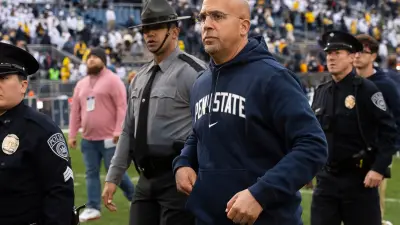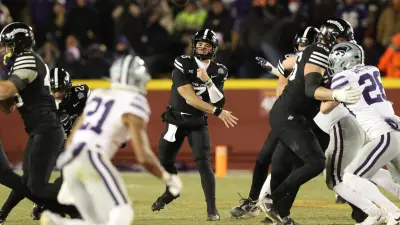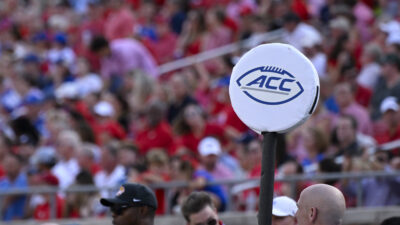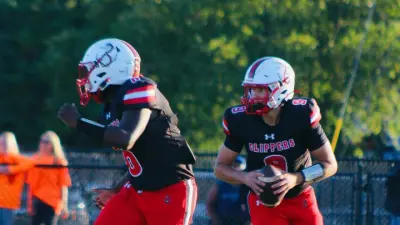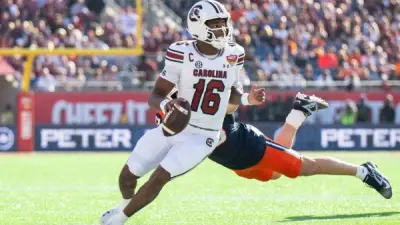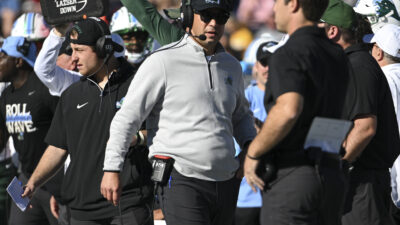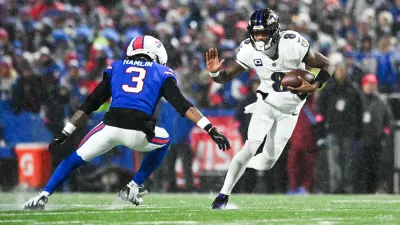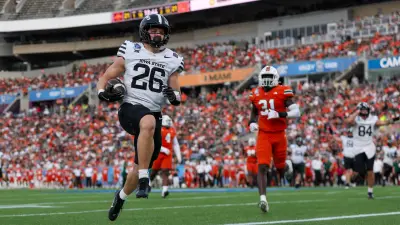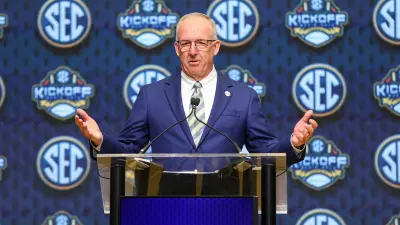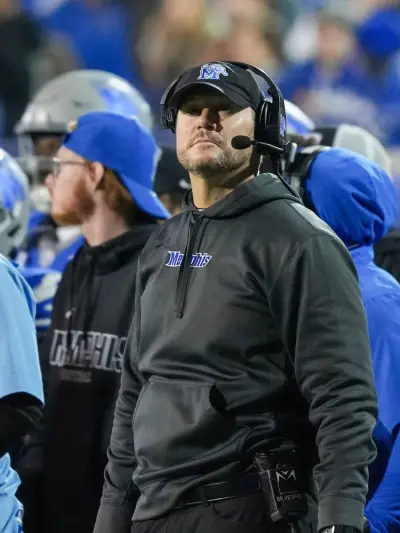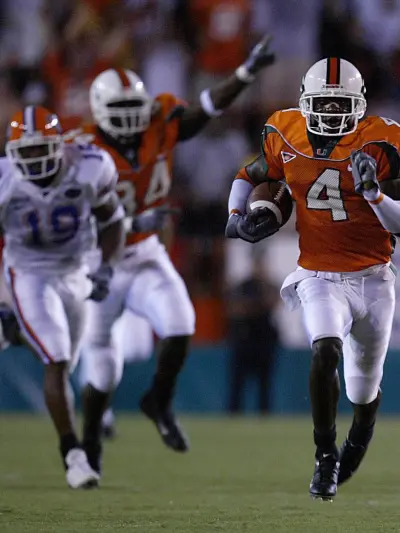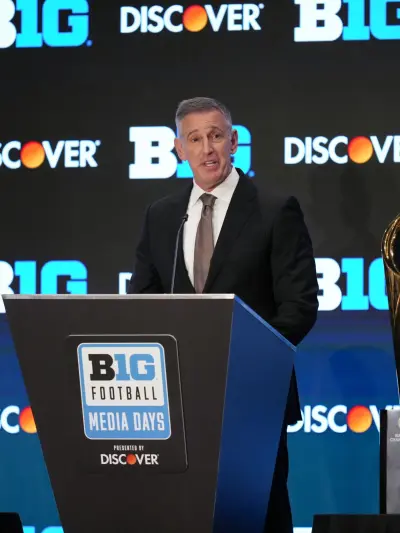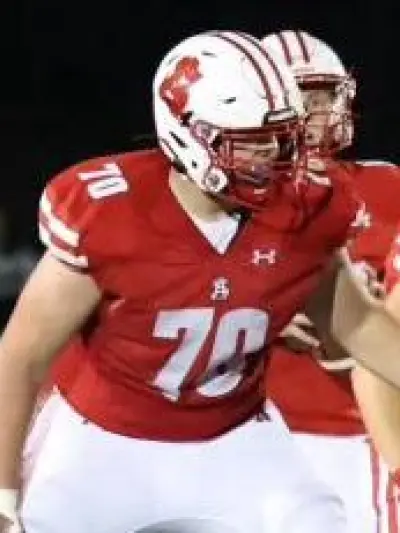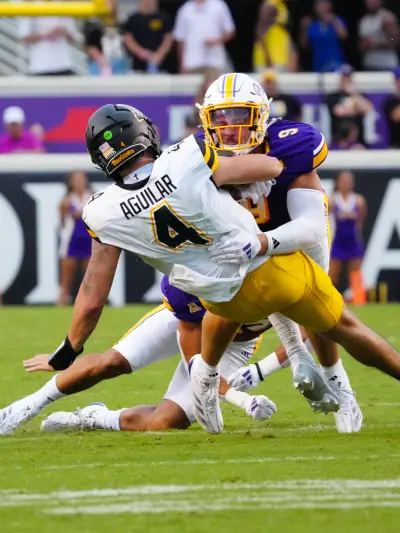By Kyle Golik
Make no mistake about it, leaders have options. Football coaches are more than just generals on the gridiron, they are CEO’s of their “organizations” – now a popular buzzword that emanated from Nick Saban throughout his time at Alabama and you can hear it with many of his disciples. CEO’s are often charged with protecting the brand at all costs. Every move is calculated and the staff that supports the CEO is charged with aiding making decisions that protect the brand.
Penn State football is no different than any of the other 134 FBS schools in that aspect. The difference is that Penn State is higher up on the food chain and has more resources to come up with strategies to protect the brand.
Ahead of head coach James Franklin’s post-practice press conference Wednesday, an organizational decision was made in the wake of the news that former defensive end Jameial Lyons and former linebacker Kaveion Keys were charged with felony rape, aggravated assault without consent, and misdemeanor indecent assault without consent and invasion of privacy without consent.
Additional charges for Lyons included voluntary deviate sexual intercourse.
Lyons was released on a $500,000 bond by Centre County Magisterial District Judge Donald M. Hahn during an arraignment Wednesday; Keys was released on a $400,000 bond.
A preliminary hearing is scheduled for October 30.
More Sports News
Penn State Sports and Information Department released a statement and reiterated prior to Franklin’s Wednesday media session, “Regarding the two former Penn State football players, we released a statement yesterday and our program and athletics department will have no further comment.”
A Penn State spokesman ahead of James Franklin’s post-practice media session says the head coach will have no comment on Jameial Lyons and Kaveion Keys. Both former players face felonies including rape.
Qs about both have since been asked and James Franklin will not answer. pic.twitter.com/qfD83jTzWy
— Audrey Snyder (@audsnyder4) October 23, 2024
As Franklin approached the session and opened it up for questions, The Athletic’s Audrey Snyder opened things off about the forbidden topic.
Snyder asked, “James, at what point in the summer were you aware that these guys weren’t going to be part of the team?”
At that point, Franklin ducked and allowed Penn State Assistant AD for Football Communications Greg Kincaid to halt the question time and reiterated to the media present, “Again, guys, the university already released a statement.”
Franklin was pressed once again about the situation, and again question time was halted, forcing Kincaid to reread the statement prepared to him about the situation.
For many Penn State fans, there is unnecessary ire toward Snyder and Jon Sauber of the Centre Daily Times for pressing Franklin on the situation. I see no problem with them doing that.
Fans typically want it both ways, they want journalists to ask the hard questions when it is convenient for them and when they want hard answers. When the situation is dicey, in this case with Penn State ranked No. 3 in the nation, and all their goals in front of them – fans don’t want the media to “rock the boat.”
James Franklin refused to comment on rape charges against former players. My story, with video (from @JacksonRanger1) of when Franklin was asked:https://t.co/9pbLokyZag pic.twitter.com/JUMZWhMbOR
— Jon Sauber (@JonSauber) October 24, 2024
Here is the thing, everyone has a job to do in this situation.
I am willing to bet Penn State Strategic Communications and Legal conveyed to Kincaid and his department, along with Franklin, what to do and not to do. I am willing to bet someone on legal counsel prepared the statement and instructed it to be read. To me there is nothing wrong with that.
Franklin, in one aspect as someone who has dealt with a lot of public relations in my professional life, I applaud his actions because he didn’t open himself to liability. In other aspects, Franklin looked weak in the situation and could have commanded the room, answering to Snyder that he simply had no further comment at this time instead of ducking the question.
That is where Franklin had the option, he could lay it on the line that he has nothing else to say and if he got further pressed, then Strategic Communications could interject.
When you look at Snyder and Sauber, they had a job to do. Ultimately, they seek out a story, the story might not be print-worthy immediately but in the game of the media you have to play chess. You got to ask the hard questions just to get on record you asked them, when someone tells someone in the media this is off limits, that needs to be pressed.
The whole objective of good media is that the media remain independent, professional and responsible. Their role is to inform, criticize and stimulate debate. In order to create debate, they must press for information because they are the ultimate suppliers.
Sometimes it gets awkward, it has to be, there is no other way around it. If the media can’t press Franklin or any person then you as an audience will never get informed and all information you receive will be controlled or coach speak. What Snyder and Sauber did was press for information, even if Franklin wasn’t going to answer, they fulfilled their duty in it.
As for Franklin, I still feel mixed about the situation. I get why he did what he did ducking the question, but from an optics perspective, simply control the situation and say you have no comment. That is the option Franklin took, the path of least resistance, and there is something to be said when one takes that road.
Knowing Snyder and Sauber, this whole situation is notated because don’t necessarily look at the particulars and details, but look at the macroview. This is a trait Franklin has displayed and can be pressed upon in future interactions because when it comes down to decision-making, there is a lot that can be implied with it.
While the whole scene seemed awkward, everyone, for the most part, did what they were supposed to do. Sometimes it’s just not going to be pretty.
